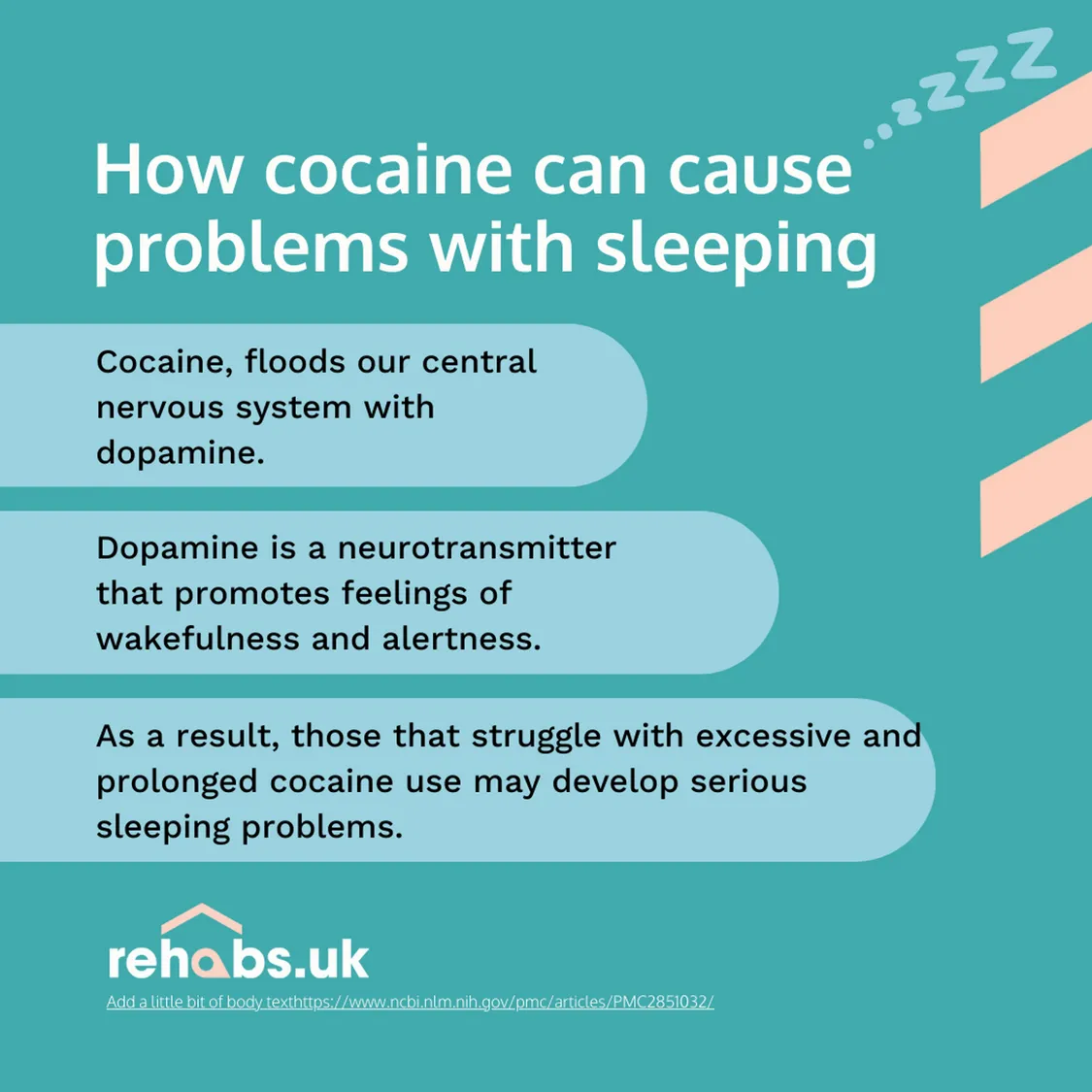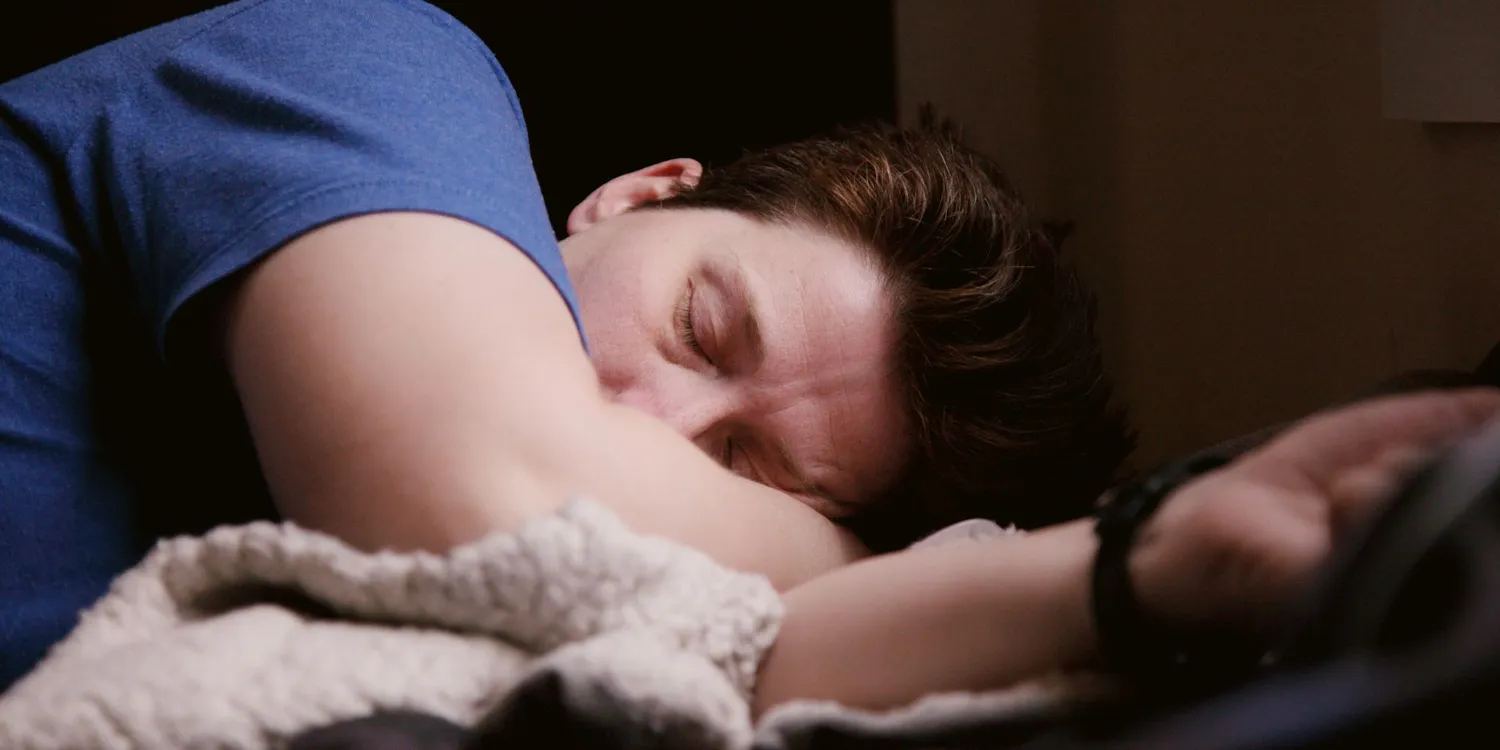01 Jun 2023
How cocaine affects sleep
Before delving into the specific sleep-related problems associated with cocaine use, it is crucial to understand how this drug affects the brain. Cocaine works by increasing the levels of dopamine, a neurotransmitter associated with pleasure and reward, in the brain. This surge in dopamine leads to a heightened sense of euphoria and energy, making it difficult for users to feel tired or fall asleep.
Neurological effects
The neurological effects of cocaine use can disrupt the normal sleep patterns and quality of sleep. Studies have shown that cocaine can interfere with the production and release of melatonin, a hormone responsible for regulating sleep-wake cycles. This disruption can lead to difficulties falling asleep, staying asleep, and experiencing restful sleep.
Behavioural effects
In addition to the direct impact on the brain, cocaine use can also have behavioural effects that contribute to sleep problems. Frequent cocaine use often leads to erratic sleep schedules and a disregard for healthy sleep habits. Users may stay awake for extended periods, engaging in risky behaviours, and neglecting the body's natural sleep rhythms.
Cocaine addiction and insomnia
Cocaine addiction is closely linked to insomnia, a sleep disorder characterised by difficulties falling asleep or staying asleep. Prolonged cocaine use can alter the brain's reward system, leading to tolerance and dependence. As the body becomes accustomed to the drug's presence, users may find it increasingly challenging to achieve restful sleep without cocaine.
Dealing with occult insomnia
Occult insomnia, a term used to describe insomnia caused by substance abuse, including cocaine, requires specialised approaches for treatment. When addressing cocaine addiction, it is essential to consider its impact on sleep. A comprehensive treatment plan should involve addressing both the addiction and the sleep problems concurrently. This may include therapy, detoxification, and establishing healthy sleep habits.

Cocaine addiction and sleep apnoea
Sleep apnoea, a condition characterised by pauses in breathing during sleep, can be exacerbated by cocaine use. Cocaine's stimulant properties can further contribute to the narrowing of the airways, increasing the risk of apnoea episodes. This combination of cocaine addiction and sleep apnoea poses significant health risks and necessitates appropriate intervention.
Other sleep-related problems caused by cocaine usage
Apart from insomnia and sleep apnoea, cocaine use can lead to a range of other sleep-related problems. These may include excessive daytime sleepiness, irregular sleep-wake patterns, nightmares, and heightened restlessness during sleep. These disruptions can further exacerbate the overall negative impact of cocaine on sleep quality and quantity. It can also have a large impact on overall heart health.
The effects of cocaine withdrawal on sleep
When attempting to quit cocaine, users often experience withdrawal symptoms, which can have additional implications for sleep. The abrupt cessation of cocaine can result in intense cravings, anxiety, depression, and insomnia. Sleep disturbances during withdrawal can make the recovery process more challenging, highlighting the need for professional support and guidance.
How to reverse the effects of cocaine on sleep
Seek Professional Help: If you are struggling with cocaine addiction and its impact on sleep, it is essential to reach out to healthcare professionals specialising in addiction medicine. They can provide guidance, support, and evidence-based treatments tailored to your specific needs.
Establish a Consistent Sleep Schedule: Creating a regular sleep schedule helps regulate your body's internal clock and promotes healthier sleep patterns.
Create a Sleep-Friendly Environment: Make your bedroom conducive to sleep by ensuring it is dark, quiet, and at a comfortable temperature. Remove electronic devices and distractions that may interfere with your sleep.
Practice Relaxation Techniques: Engaging in relaxation techniques before bedtime can help calm the mind and prepare the body for sleep. Consider activities such as deep breathing exercises, meditation, or gentle stretching.
Avoid Stimulants: Limit or avoid the consumption of caffeine, nicotine, and other stimulants, as they can interfere with sleep. Be mindful of hidden sources of caffeine, such as certain medications and energy drinks.
Exercise Regularly: Engaging in regular physical activity during the day can promote better sleep at night. However, avoid exercising too close to bedtime, as it may increase alertness and make it harder to fall asleep.
Practice Good Sleep Hygiene: Adopting healthy sleep habits can greatly improve your sleep quality. This includes avoiding large meals, alcohol, and stimulating activities close to bedtime. Create a relaxing bedtime routine to signal to your body that it is time to sleep.
Manage Stress: Chronic stress can negatively impact sleep. Explore stress management techniques such as mindfulness, journaling, or talking to a therapist to help alleviate stress and anxiety that may contribute to sleep problems.
Avoid Napping: If you have trouble sleeping at night, it is best to avoid daytime napping. If you feel the need to rest during the day, limit your nap duration to 20-30 minutes and avoid napping too close to your bedtime.
Be Patient and Persistent: Reversing the effects of cocaine on sleep takes time and effort. It may require a combination of lifestyle changes, therapy, and medical support. Stay committed to your recovery journey and seek professional assistance whenever needed.
How to get help with cocaine addiction
If you or someone you know is struggling with cocaine addiction, it is crucial to seek help as soon as possible. Overcoming addiction requires professional assistance and support and that's why at Rehabs UK we have a comprehensive aftercare programme included within any of the addiction treatments we provide. Here is a contact form to help individuals find the appropriate help they need.
